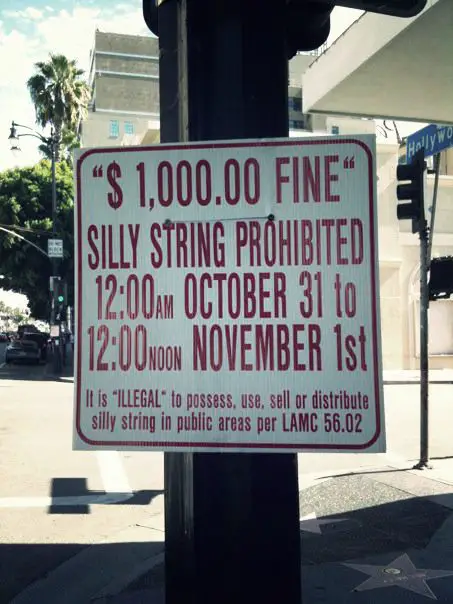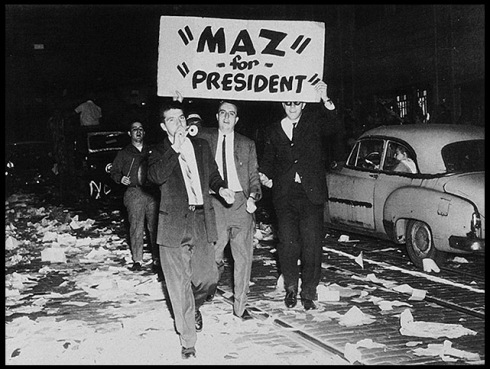We all have our pet peeves when it comes to writing, and I think that some of you will agree that the prevalent habit of misusing – or overusing – quotations marks is of those things. To be honest, this does not bother me as much as interchanging your and you’re. However, the discovery of a blog focusing on the unnecessary use of quotation marks has led me to write about the issue. ((the “blog” of “unnecessary” quotation marks))
Before I bombard you with some rules on the use of quotation marks, let me add a little bit of fun to your Monday by sharing how the real world makes use of these punctuation marks.
First up is a Halloween sign somewhere in Hollywood. ((Source: the “blog” of “unnecessary” quotation marks))

I am not sure if the guys who made the sign are being sarcastic, or they just don’t know what they’re doing. In any case, it’s probably not a good idea to buy fireworks from them! ((Source: The Huffington Post))
When did this propensity for overusing quotation marks start? I have no idea, but it definitely is not a recent trend. Take a look at this photo published 50 years ago by The Pittsburgh Post-Gazette. ((Source: Motivated Grammar))
Maz stands for Bill Mazeroski, a popular baseball player during that time. His home run during the final game of the ’60s Series turned him into a legend, leading some overly enthusiastic fans to push for him as president.
Now that we’ve seen a few examples of how quotation marks can be used incorrectly, let’s take a look at two major rules for the use of quotation marks.
Rule #1: Direct quotations
When you are incorporating another person’s words into your writing, you have to use quotations marks.
He said, “You have to follow the rules.”
The judge said that he was not willing to “bend the rules” for that particular case.
In the first example, the first letter of the quoted statement is capitalized because it is a complete sentence. In the second example, the quoted material is a fragment, so no capitalization is required.
Rule #2: To indicate irony, double meaning, or a particular use of the word/phrase
I think this is the most common source of incorrect usage of quotation marks. Some correct examples of this particular usage are seen below.
His excuse was that he was too “busy” to attend the meeting.
I “love” waking up at 6 in the morning to go jogging.
In both examples, the quotation marks are used to indicate that the words inside mean something else. In the first sentence, it is implied that the person’s excuse – being busy – is a load of cr*p. In the second sentence, it is implied that the prospect of waking up early in the morning is not really pleasant for the person uttering the statement.
Obviously, there are more rules governing the use of quotation marks. However, I think that if you know these two by heart, you’ll be quite safe from making egregious mistakes.
Given those two rules, though, can you now pinpoint the reasons I posted those signs in the first part of this post? Why do you think people continue to misuse quotation marks this way?



Leave a Reply